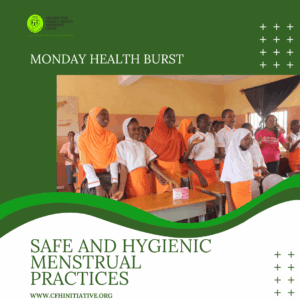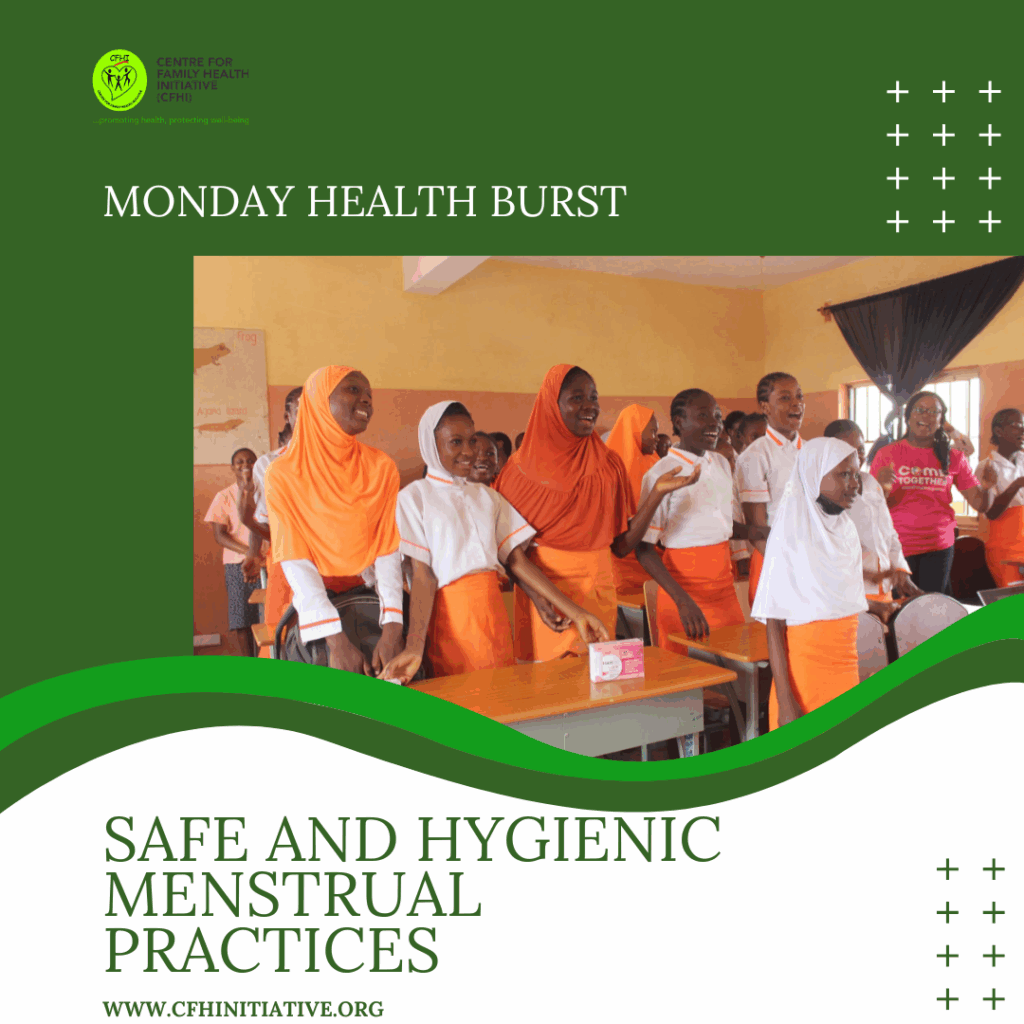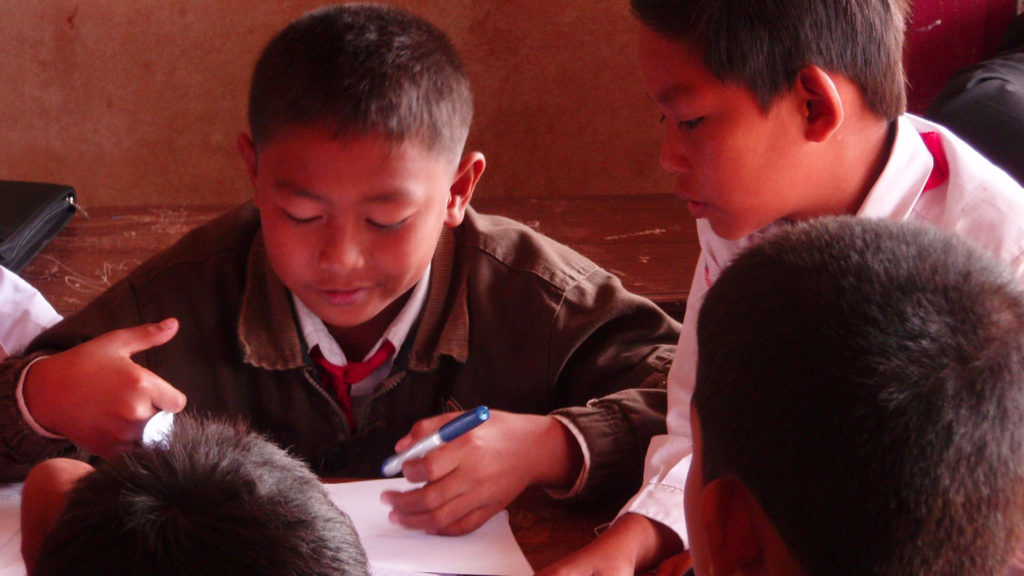As we mark Day 9 in the countdown to World Menstrual Hygiene Day on May 28, we spotlight a crucial component of menstrual health: safe and hygienic menstrual practices. Menstruation is a natural bodily function, yet millions of girls and women around the world still face challenges in managing their periods safely and with dignity.
A lack of access to sanitary products, clean water, private toilets, and accurate information often leads to poor menstrual hygiene, which can result in infections, missed school or workdays, and emotional distress.
Key Elements of Safe and Hygienic Menstrual Practices
🩸 1. Use of Clean Menstrual Products
Sanitary pads, tampons, menstrual cups, and reusable cloth pads (made with hygienic materials) are all viable options—if they are clean and used correctly. These products should be changed every 3-5 hours to prevent infections and discomfort depending on one’s flow.
💧 2. Proper Personal Hygiene
During menstruation, maintaining hygiene is vital:
- Wash hands before and after changing menstrual products.
- Clean the genital area with water at least twice daily.
- Avoid using perfumed soaps or harsh chemicals on sensitive areas.
♻️ 3. Safe Disposal of Menstrual Products – Day 9 Focus
Today’s countdown spotlight emphasizes the importance of safe disposal. Menstrual waste, if improperly managed, can pose health risks and environmental hazards.
Here’s how to practice safe disposal:
If you’re using disposable products like pads or tampons:
- Wrap them in paper and discard them in a covered bin.
- Use incinerators or proper waste disposal methods when available.
- Never flush them down the toilet to avoid environmental damage.
If you’re using reusable products like cloth pads or menstrual cups:
- Wash them thoroughly with soap and clean water after each use.
- Dry them completely in sunlight or in a clean, airy space before storing.
- Store in a clean, dry container or pouch until next use.
Proper care prevents infections and extends the lifespan of the product.
By promoting proper disposal, we not only reduce health risks but also combat the shame often associated with menstruation. It’s a step toward dignity and sustainability.
🚻 4. Access to Water, Sanitation, and Hygiene (WASH) Facilities
Girls and women need access to clean water and private, safe toilets to manage their periods effectively. This is especially important in schools, workplaces, and public settings.
📚 5. Education and Awareness
Accurate menstrual education should begin early. It helps girls understand their bodies and breaks myths. Boys should also be included in this conversation to foster empathy and reduce stigma.
As we count down to World Menstrual Hygiene Day, let’s remember: a period should never be a barrier to education, dignity, or opportunity. Practicing and promoting safe and hygienic menstrual practices is not only a health issue, it is a human rights issue.
Together, through daily awareness, open dialogue, and inclusive policies, we can build a world where menstruation is safe, stigma-free, and supported.
Monday Health Burst is an initiative of Centre for Family Health Initiative (CFHI) to tackle issues of basic health concerns. Join us every Monday for more health-related articles on all our social media platforms.
#MHDay2025 #Day9 #MenstrualHygiene #SafeDisposal #PeriodDignity #WorldMenstrualHygieneDay #MenstruationMatters



